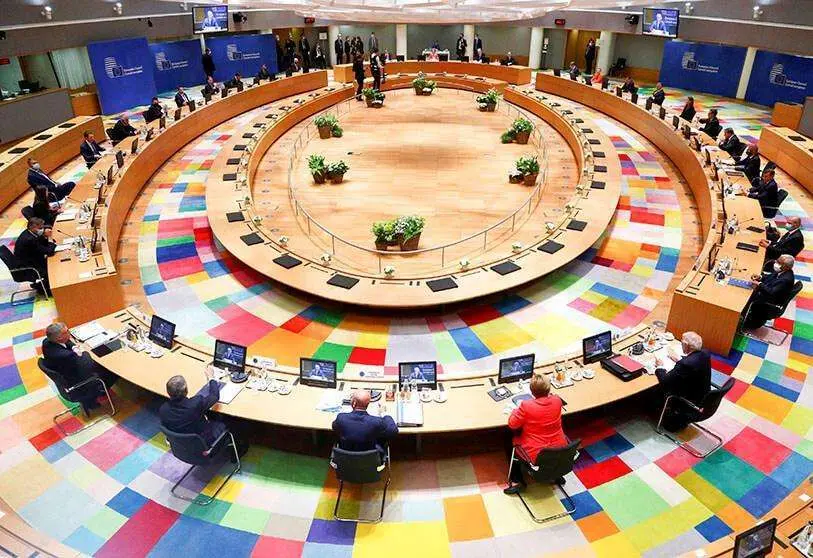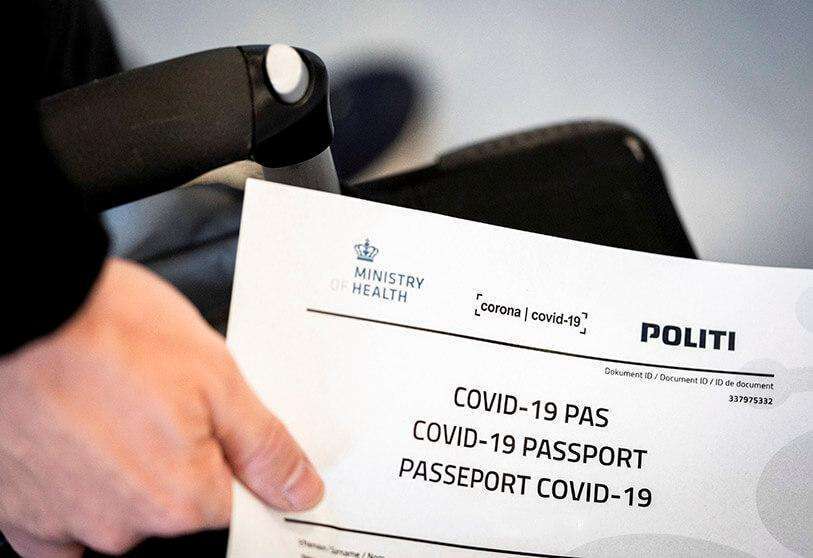Debate in the European Union on the European vaccination certificate

Leaders of EU countries and institutions will this week hold the first coordination meeting on the pandemic in 2021, as vaccination campaigns against COVID-19 begin and capitals try to prevent a third wave of coronavirus.
The 27 launched the debate on Monday on the European vaccination certificate, proposed by Greece, but some countries are reluctant to accept the risk of discrimination against unvaccinated people.
The debate focused on the mutual recognition of these certificates and the creation of a digital platform for collecting and exchanging data on vaccination, particularly to assess its effectiveness.
Greek prime minister Kyriakos Mitsotakis last week put forward the idea of a "standardised" vaccination passport, which would allow vaccinated people to travel in order to boost the tourism industry, which has been devastated by the coronavirus pandemic.
The European Commission supports the idea of a "mutually recognised" COVID-19 vaccination certificate, said its president, Ursula von der Leyen, in an interview with several Portuguese media before her visit to Lisbon on Friday.
"In the certificate, we must continue the debate", said the Portuguese Secretary of State for European Affairs, Ana Paula Zacarias, whose country holds the six-month presidency of the EU, following a meeting with her counterparts by videoconference three days before a European summit, also at a distance.
However, some countries such as France and Germany are reluctant to implement the vaccination passport because of the discrimination it can create between citizens who are immune and those who are not.

Germany's secretary of state for European affairs, Michael Roth, also raised the question of whether those vaccinated would no longer transmit the virus, saying the time had not yet come to discuss the "details" of the document.
As for the debate on the advisability of a "vaccination passport" that would allow its holders to do things such as travel by plane, health minister Olivier Véran said "it is very premature" given the percentage of the population that has been able to access the vaccines, but "the question will inevitably arise". And in particular, if it is shown that vaccines reduce the risk of contagion, "this debate will be necessary," he added.
It would seem sensible to identify the lucky ones who are no longer at risk of infection and give them a "COVID passport". We could also give them certain privileges, facilitate their mobility or allow them to work in jobs with a higher risk of exposure to the virus.
As British Foreign Secretary James Cleverly said: "This type of passport is about unlocking people's lives, unlocking the economy, ensuring that we protect lives and livelihoods".
For his part, the Spanish Minister of Industry, Trade and Tourism, Reyes Maroto, on Monday expressed Spain's support for the European-level vaccination certificate being studied by the EU as a measure to show who has been vaccinated against COVID-19 and to be able to reactivate tourism.
Maroto gave his support to the initiative that European leaders will discuss at the telematic summit this Thursday, at the proposal of Greece.
"This is good news as a sign of multilateral commitment. It could help to restore mobility at European level", said the minister during her speech to the Executive Council of the World Tourism Organisation.
The Belgian Minister for Foreign Affairs, Sophie Wilmès, also stressed that "this certificate cannot infringe on individual freedoms or cross-border mobility" or "lead to discrimination between European citizens when access to vaccines is not generalised", according to a press release from the ministry.








